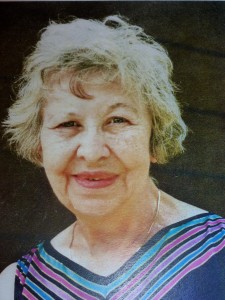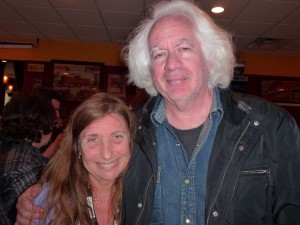Spring 2013

Human Rights and Genocide Studies
Dipartimento di Scienze sociali politiche e cognitive
Dear Friends of The Last Album: Eyes from the Ashes,
| I’m writing to you on the day that would have been my mother’s 91st birthday, if she had not died 18 years ago. And so I think it is fitting to share a memory of her with you today, and explain the connection to the letterhead, pictured above, from Italy’s University of Siena. |  |
This heading begins a letter inviting me to speak at their Human Rights and Genocide conference taking place a few months from now in Siena, Italy. Unlike many other speakers who detail the inhumanity and barbarity of this period, I will, in contrast, speak about the kindness, compassion, and chesed (Yiddish, ‘acts of loving kindness’) that remains–after the people, themselves, are gone. And rather than speaking of Last Album photos, instead I will speak from my mom’s memory, with excerpts from her unpublished memoir, including many times she remembered kindness, even, and especially, in the midst of horror.
There is a whole dissertation written a few years ago, from University of Pennsylvanis, where many of her stories, as well as narratives of her extraordinary family, are shared. Here, I will share only one.
Lunia Backenroth Gartner Schafer Weiss*, despite experiencing life’s worst, always chose to emphasize life’s best. And that’s how she raised us–with hope, with optimism and with unconditional love–despite (or, in spite of, devastating losses and unspeakable brutalities. As Leon Wieseltier affirmed in his eulogy at her funeral, Lunia “never lost the idyllic feeling of her youth….perhaps the greatest gift that Lunia and Lonek … gave to Annie and Susie… : the gift of obstinacy of life.”

Leon Wieseltier & Ann, Washington, DC, 3-24-12, on day of Yehuda Leib’s birth in Israel
Beyond never surrendering to despair and her ‘obstinacy of life,’ Lunia chose to emphasize the good, in fact, she made a conscious choice to look for, not just the good, but the best that was possible. Never forgetting or glossing over the truth, no matter how brutal, she somehow managed to find something–or someone–for whom she was grateful.
In honor of her birthday, I share with you a memory of one of the many people for whom Lunia was grateful–Eliezer, the ghetto comedian. And as you’ll see, despite dire circumstances, she not only remembered him, but in sharing these memories with her children and grandchildren–and now with you, posthumously, Lunia makes it possible for us to remember Eliezer as well.
[Note: In this first person account of Lunia Backenroth Gartner Schafer Weiss, the “I” is Lunia, not Ann–and this narrative integrates Lunia’s written memoir with additional details recounted in our subsequent conversations. AW].
ELIEZER THE COMEDIAN
There was an old man, no one knew exactly where he came from, who appeared in the ghetto one day. There were other people we did not know, of course–but Eliezer was different. Everywhere Eliezer went, he brought laughter with him.
We were starving in the ghetto. No one had what to eat, and every day it was a big challenge just to find enough food for the family to survive another day. But Eliezer was SO beloved that, even though we didn’t have enough ourselves to eat, many families in the ghetto, including ours, shared our meager scraps with him. And in this way, Eliezer lived, and in this way, we lived.
Why was Eliezer so beloved? He made us laugh! Every time we saw Eliezer, he found a way to lessen our misery and make the squalor around us a little more bearable.
How? With his jokes. HIs jokes were always topical and related to the latest changes in the ghetto conditions. In fact, when some of the bigger ghettos were liquidated, sometimes people ran to smaller ghettos, like ours–I think that’s how we got Eliezer. There were many professional comedians who performed on big stages in Warsaw before the war, and many of them were killed. I believe Eliezer was one of these famous comedians who managed to escape to our ghetto.
Nobody knew where or how he lived. But he had a habit of popping up he and there. Every moring he lifted his arms to the sky and said, ‘Shma’/‘Listen/Hear me!’ and yelled out loud: See Lord, I am still here–but what about You?? and then he finished saying the prayer of ‘Shma,’ which affirms the presence and singularity of G-d.
One day, I passed Eliezer on the street. He was laughing out loud, and started singing and dancing. By this time, things had deteriorated so drastically in our ghetto that people stopped to ask Elieazer, ‘What is this great joy now?’
Eliezer, still chuckling, replied: I was just thinking of the other tyrants. When Pharoah tried to destroy us, we survived and now we eat delicious matzoh balls. When Haman tried to destroy us, we survived and now we eat delicious hamantashen. I’m just wondering and planning the delicacy after we get rid of this tyrant, Hitler!!!
With that, as always, he dispelled the mood of hopelessness.
Another joke I remember Eliezer saying–today many comedians on the Borsht Belt say it–but who knows, maybe Eliezer was the first to say so. It goes like this:
“Dear G-d, You made many people. For thousands of years we were Your chosen people. Nu! Enough already! Choose someone else for a change!”
And so it went like this in the ghetto. Starvation, disease, misery, life went from bad to worse, to not even imaginable that anyone could survive. But still we did.
And after every deportation, when it was over, we would look around the ghetto to see who is still here. One day, the Nazis caught Eliezer. When finally he too was taken away, everyone cried like for a relative.
In stories like this, my mother managed to humanize a moment, and give us a glimpse of someone whom we would otherwise never have known even existed. We do not know Eliezer’s full name or the story of his life–but we do know this:
A comedian named Eliezer once lived, and before he died, he managed to lessen the horror for those around him, and for a few minutes, make them laugh. May his memory be for a blessing.
As I close, let me wish each of you, a sense of wonder as the world comes to life again, after this long, cold winter.
Ann Weiss
* NOTE:
Explanation of Lunia Backenroth Gartner Schafer Weiss’ name: Because I believe names are important, I am using all my mother’s family names, although it was not my mother’s practice to do so–in fact, to my knowledge, she never used all her names–but let me explain each name:
‘Backenroth’ was her mother’s family name, and her mother, Chana Backenroth, belonged to an illustrious Hasidic family who owned oil wells in the Carpathian Mountans, who did great chesed and there is even a book written about this famous family, titled Tightrope, which as author Michael Karpin (an Israeli political journalist, who is also a radio and television reporter) has subtitled, “Six Centuries of a Jewish Dynasty.”
‘Gartner’ is her father’s family name. They lived in Stryj, Poland (now Ukraine) where they owned lumber and steel mills. Also a Hasidic family (Boyaner), the Gartner’s were also great philanthropists, and built a new wing of the hospital in Stryj and a breathtaking theatre/performace space, where great performers and opera companies were come to perform. As my mother said, “They were come to Paris, Rome, Berlin, Vienna…and Stryj!! (because of the extraordinary beauty of that performance space!). The Gartners were also known as great Torah scholars, the Gartners–especially Shamei and Naftali (her grandfather and father).
‘Schafer’ is the name of my mother’s paternal grandmother. As she explained, “It was the custom to use the father’s last name in civic affairs and the mother’s last name in business,” hence Schafer was used in business.
‘Weiss’ is the surname of Leo (or Lonik, Yiddish), the man she married after the war, my dad, and with whom she traveled to Italy to begin a new life after learning that all her immediate and much extended family was murdered. Life in Italy involved both Lunia and Leo earning Ph.D.’s and involvement in the Bricha movement. These stories, and more…to be continued.
Posted in From Ann | No Comments »